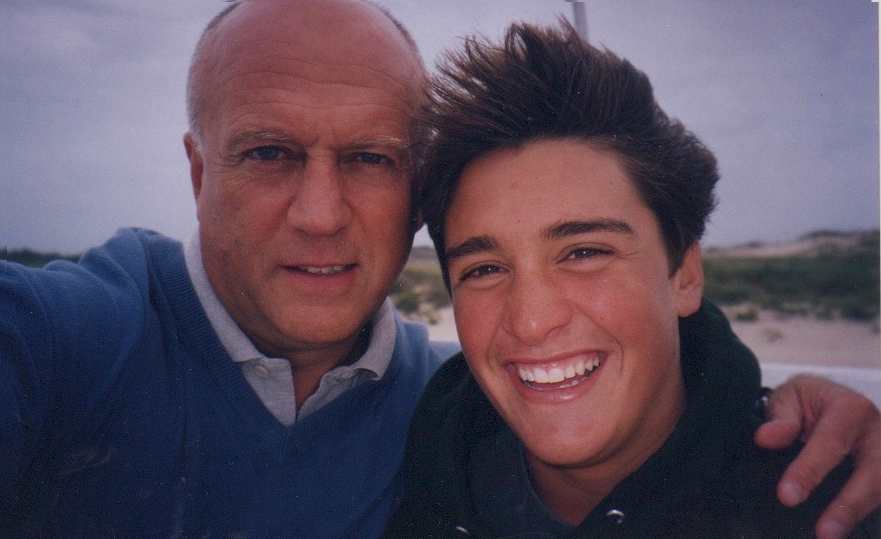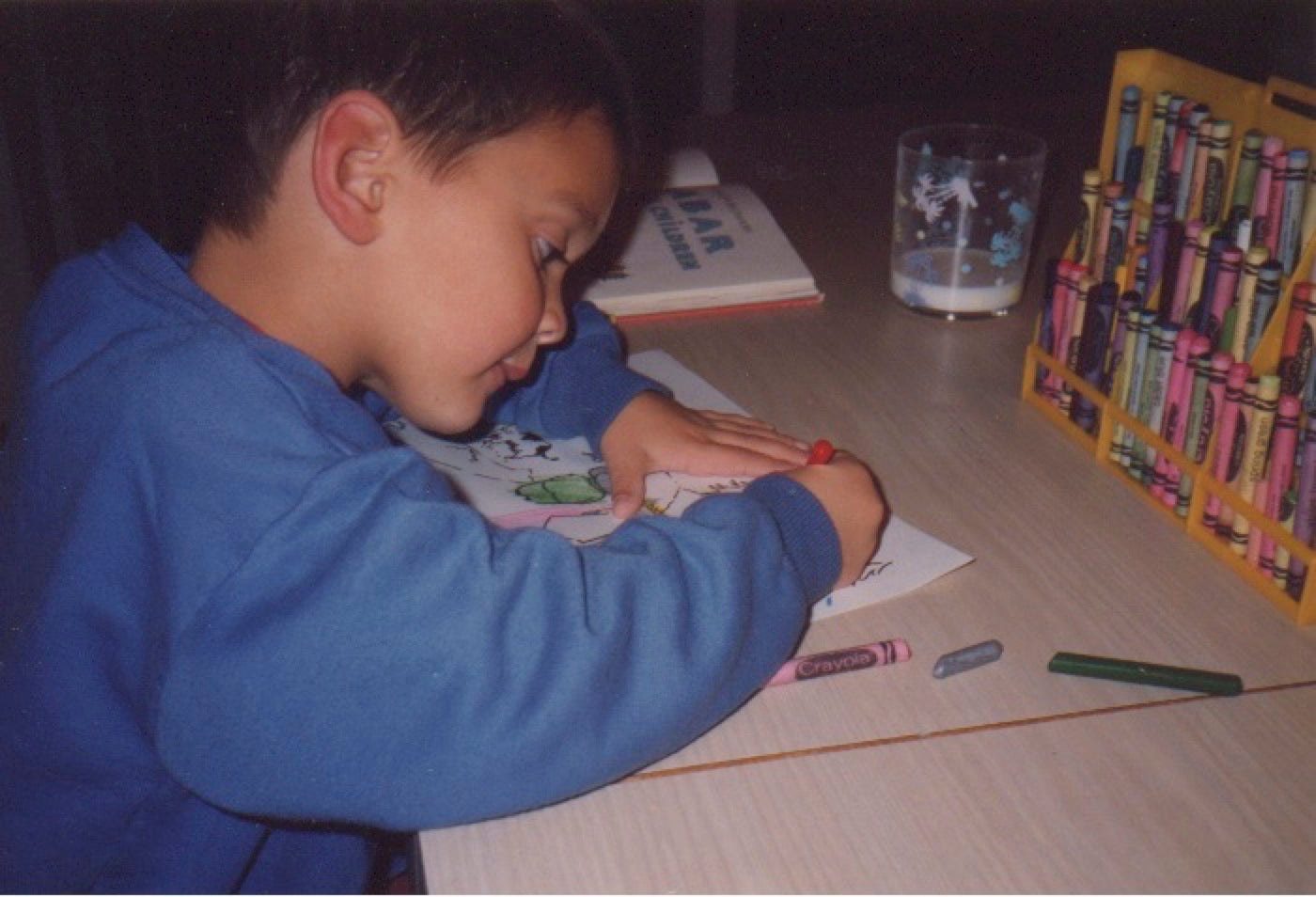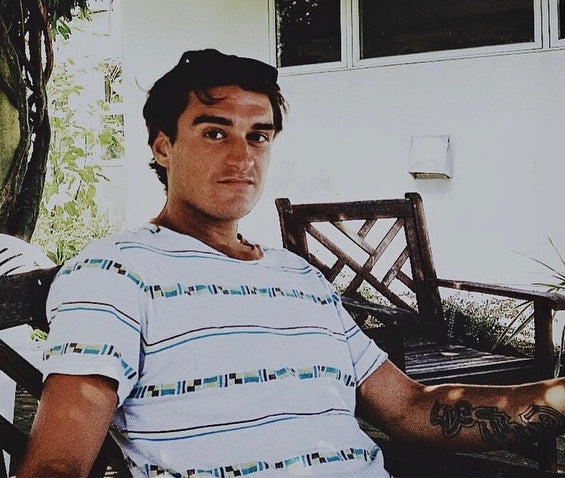REMEMBERING SAX LEADER
From the time he was crawling and could hold a pen, Sax made pictures that told stories.
When he was 4, the family moved from London to the Hamptons. At dusk, one summer evening, we slammed into a deer that leapt in front of our Jeep on the Montauk stretch heading west. The Jeep was a write-off but no-one got injured, just shaken up, and we managed to limp home in one piece. While the cop laboriously wrote up the accident report, Sax sat silently at the kitchen table, busy with his crayons. As the cop was leaving, Sax strolled up and casually gave him the finished drawing. It was a vivid depiction of the accident – our bright blue jeep had smashed into the deer, which was spreadeagled in the road with blood pooled from its mouth and nostrils. “Here that’s what happened,” he said and headed upstairs to watch TV.
Since then, Sax followed his passions, either at the ocean, playing sports, or making pictures. Initially, he created stories inspired by his childhood heroes – Ninja Turtles, Robin Hood, comic book characters – source material for a wildly imaginative boy who playacted his pictures in full costume!
At 20, Sax went into rehab for addiction in Santa Cruz, CA. While working on his sobriety, he created this series of pictures with marker ink and cardboard in which the characters and their pranks are drawn from his teenage experience. They are vivid and compelling because they come unfiltered from his own life story.
Over the course of the following summers, Sax printed several batches of these t-shirts to sell at the beach. We planned to develop his artwork into a clothing brand but, heartbreakingly, that wasn’t to be. In 2013, Sax succumbed to his addiction, yet another tragedy in the nation's opioid epidemic.
Nevertheless, this project bears Sax’s incandescent spirit and humor which would have made him extremely proud and happy, as it makes me, his Dad.
The launch of Sax’s brand, OnPoint, marks the birth of a new foundation in his memory. The profits from the sale of these t-shirts, and all future designs, will be distributed among the Gogos (grandmothers) in Zimbabwe who offer talk therapy on a public Friendship Bench to anyone seeking their support and understanding. The program is based on cognitive therapy, namely, active listening with empathy and undivided attention.
Sax would surely have appreciated this revolutionary approach to mental health as he loved grandmothers with his big, bold heart, just as he loved life itself, of which he didn’t get nearly enough.






